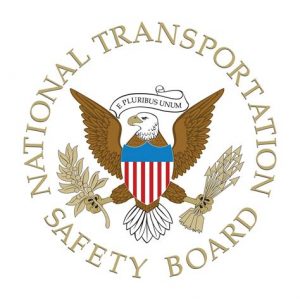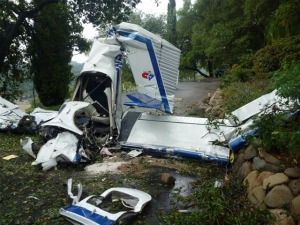An airman was recently involved in an aircraft “mishap.” Afterwards he asked me whether he needed to make any type of report to the Federal Aviation Administration (“FAA”) or the National Transportation Safety Board (“NTSB”). My lawyerly answer was “it depends.” But after the airman provided me with a more detailed explanation of what had happened I was able to tell him he did not need to make any type of report about the “mishap” to either the FAA or NTSB. Reporting to his aviation insurer was a different matter!
Unfortunately, this is not an unusual scenario. More than a few airmen are either uncertain of or unfamiliar with the reporting requirements of 49 CFR Part 830 (“Part 830”). And despite this unfamiliarity, many of these airmen also do not discuss the issue with an aviation attorney prior to making the decision whether to report.
Why does this matter? Most, if not all, airmen do not want to attract the unwanted attention of the FAA. But if an airman reports an aircraft incident when he or she is not otherwise obligated to make the report, then that will be the result. Knowing when a report is required, and when it is not, can save an airman a lot of unnecessary grief.
Who Do You Notify?
Section 830.5 of the regulations governing accident and incident report to the NTSB  requires that the operator of an aircraft provide notification of any “accident” and certain “incidents” immediately. It is important to note that the operator must notify the NTSB, not the FAA. The NTSB is a federal agency separate from the FAA and it has the authority to investigate aircraft accidents and reportable incidents. Although the NTSB may, in certain situations, delegate some of its accident investigation duties to the FAA, the notification required by Part 830 must be made to the NTSB, not the FAA.
requires that the operator of an aircraft provide notification of any “accident” and certain “incidents” immediately. It is important to note that the operator must notify the NTSB, not the FAA. The NTSB is a federal agency separate from the FAA and it has the authority to investigate aircraft accidents and reportable incidents. Although the NTSB may, in certain situations, delegate some of its accident investigation duties to the FAA, the notification required by Part 830 must be made to the NTSB, not the FAA.
In these instances, must notify the NTSB immediately. Section 830.6 states that the initial notification must include the following information:
-
Type, nationality, and registration marks of the aircraft;
-
Name of owner, and operator of the aircraft;
-
Name of the pilot-in-command;
-
Date and time of the accident;
-
Last point of departure and point of intended landing of the aircraft;
-
Position of the aircraft with reference to some easily defined geographical point;
-
Number of persons aboard, number killed, and number seriously injured;
-
Nature of the accident, the weather, and the extent of damage to the aircraft, so far as is known; and
-
A description of any explosives, radioactive materials, or other dangerous articles carried.
In addition to the initial notification, a written report of an accident must be made on NTSB Form 6120 and filed with the nearest NTSB field office within 10 days of the accident, or for a reportable incident only as requested by an authorized representative of the NTSB. The form is available from the NTSB field offices and can also be obtained from the local FAA Flight Standards Office.
Who Must Provide The Notification?
The rule defines an “operator” as “any person who causes or authorizes the operation of an aircraft” which can include the owner, lessee, or anyone flying or using the aircraft. Please note that this does not necessarily mean, and in many instances will not be, the pilot. An aircraft owner or FBO can make the report even if the pilot does not.
However, if someone other than the pilot makes the report, Section 830.15(b) also requires that the crewmembers, if they are physically able at the time the report is submitted, attach a statement providing the facts, conditions, and circumstances relating to the accident or
incident as they appear to him or her. If the crewmember is incapacitated, he or she must submit the statement as soon as he or she is physically able.
Is It An Accident, Incident or Neither?
Although the terms “accident” and “incident” have commonly understood meanings, for purposes of Part 830 it is necessary to understand the meanings defined in Section 830.2 in order to determine whether the situation is an accident, a reportable incident, or neither. Under Part 830, an “Accident” is “an occurrence associated with the operation of an aircraft which takes place between the time any person boards the aircraft with the intention of flight and all such persons have disembarked, and in which any person suffers death or serious injury, or in which the aircraft receives substantial damage.” Although “death” is easily understood, the rule provides specific definitions for the terms “serious injury” and “substantial damage.”
A “serious injury” is defined as “any injury which:
-
Requires hospitalization for more than 48 hours, commencing within 7 days from the date of the injury was received;
-
Results in a fracture of any bone (except simple fractures of fingers, toes, or nose);
-
Causes severe hemorrhages, nerve, muscle, or tendon damage;
-
Involves any internal organ; or
-
Involves second- or third-degree burns, or any burns affecting more than 5 percent of the body surface.”


 “Substantial damage means damage or failure which adversely affects the structural strength, performance, or flight characteristics of the aircraft, and which would normally require major repair or replacement of the affected component.”
“Substantial damage means damage or failure which adversely affects the structural strength, performance, or flight characteristics of the aircraft, and which would normally require major repair or replacement of the affected component.”